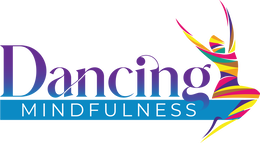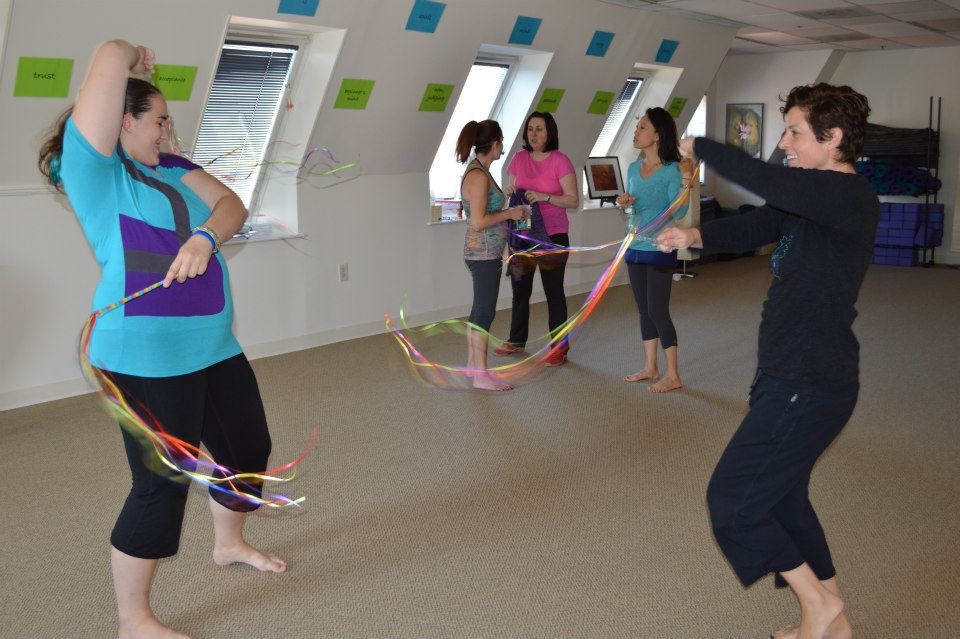|
Self-criticism is not necessarily a bad thing. That little voice which tells us when we’re doing something wrong is essential to give us some self-awareness, to ensure that we learn from our mistakes, and to prevent us from becoming narcissistic, over-entitled individuals. However, sometimes that self-critical inner voice gets a bit over-active. It starts shouting us down when it doesn’t need to, telling us that we’re going to fail, to make fools of ourselves, that everyone is going to hate us - so we should reign ourselves back and simply not try. Quite obviously, this can be very restrictive. Many who come to dance workshops may find themselves hindered by their self-critical inner voice - unable to express themselves as freely as they would like because they’re pre-emptively criticizing their performance. If this sounds like you - don’t worry! There are ways to conquer and incorporate your self-critical inner voice, so that it helps rather than hinders you. You can then unlock your full self-expressive potential, and feel the benefits of mindful dancing as you should. Here’s how:
Remember What Your Self-Critical Voice Is For If you suffer from an excess of self-criticism, it is important to remember what purpose self-criticism actually serves. Self-criticism, if it’s working properly, should be a teaching and protecting tool. It’s not there to beat you down and make you hate yourself. Far from it. It’s there to flag up when something’s going wrong, and to help you think of ways to put it right or to do it better next time. The self-critical ‘teaching’ voice helps you develop self-awareness, which in turn helps you to navigate your way successfully through the world. It’s also there to protect you from negative outcomes. If you have an overactive self-critical voice, it’s likely that you’re vastly overestimating (or misunderstanding) the importance of certain situations to your life as a whole. This is likely to be because you’ve been bullied in the past, mocked and abused until you started analyzing every tiny action for any potential it presents others to pick on you. When your self-critical voice starts up, what it’s doing is trying to protect you from the bullying you subconsciously expect to follow whatever action you’re contemplating. Of course, in practice, your self-critical voice has basically taken over the task of bullying, pre-emptively. So what can you do? It’s simple: remember that your self-critical voice is about protecting and teaching you. If the situation it’s trying to muscle in on is not one from which you, realistically, need protecting, and not one from which you’re going to learn any ‘negative’ lessons, there is simply no need for it. In a dance situation, nobody is going to mock you - however ‘badly’ you dance - and you’re unlikely to encounter any ‘negative’ lessons. So, when your self-critical inner voice pipes up, acknowledge its input, but don’t pay undue attention to it. There’s no need to take what it’s saying too deeply to heart - it’s just not relevant in this situation. Treat Yourself With Compassion We’ve said above that self-criticism serves a useful purpose when used correctly. This is true. However, self-criticism only really operates correctly when it is working in conjunction with self-compassion. Without the compassionate side of the equation, your learning and protective mechanisms will be terribly lopsided, with the self-critical element of the mechanism grossly swollen out of all proportion. Self-criticism tells you where you’re going wrong. Self-compassion helps you to put yourself right. When things are operating as they should, the whole mechanism should be something like a kindly teacher. “Look, you got this sum wrong. But it’s ok! Here’s where you went wrong, it’s an easy mistake to make. Next time, you’ll know how to do it right, and you’ll get better and better!” Without self-compassion, however, you end up with a hectoring bully. “Look, you got this sum wrong. You’re so STUPID! You’re awful at math! How did you ever think you could do math? Why do you even bother to come to this class?”. To get things working as they should, start fostering your sense of self-compassion. Understand your humanity, learn to forgive yourself, and change your restrictive, self-hating narratives to ones of self-compassion and growth. Self-compassion leads to positive change, learning, and personal development. Without it, you’ll find yourself stuck in a particularly horrible rut. Express Yourself To truly express yourself through mindful dance, you need to let go of the self-criticism which is holding you back. These classes are safe spaces, you have nothing to fear. This is a good opportunity to exercise your self-compassion, and let it help you to develop greater self-expression. Which in turn will lend you greater self-awareness and bring forth a good deal of personal development. Taming an overactive self-critical voice is often a tough process. It needs work, it needs vigilance, and it doesn’t happen overnight. But, trust us, it’s very much worth it.
0 Comments
|
Dr. Jamie MarichCurator of the Dancing Mindfulness expressive arts blog: a celebration of mindfully-inspired, multi-modal creativity Archives
September 2022
Categories
All
|
Contact |
Memberships & Affiliations |
|
Please direct all inquiries to:
[email protected] © Mindful Ohio & The Institute for Creative Mindfulness, 2021 Terms of Use Privacy Policy |
Dancing Mindfulness/The Institute for Creative Mindfulness is an organizational member of the International Association of Expressive Arts Therapists, the Dance First Association, and NALGAP: The Association of Gay, Lesbian, Bisexual, Transgender, Addiction Professionals and Their Allies; Dancing Mindfulness proudly partners with The Breathe Network and Y12SR: The Yoga of 12-Step Recovery in our shared missions.
|


 RSS Feed
RSS Feed